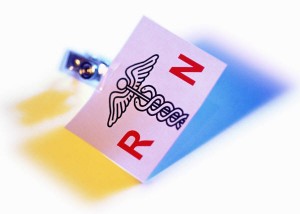By Rose O. Sherman, EdD, RN, FAAN
“It is interesting to note that despite a clear, legal definition of nursing’s role, the goal, the processes and the outcomes of nursing practice – the behaviors associated with this professional role are not consistently evident in the practice setting.” Maria O’Rourke, DNSc, RN, FAAN
 I often hear seasoned nurse leaders complain about a lack of professionalism among today’s nursing workforce. But what is really meant in these observations. Professionalism is defined as the level of skill, competence and behaviors expected of a professional. If you view professionalism through this lens, then defining those skills, the level of competence and expected behaviors becomes a joint responsibility of both the nurse and their leaders.
I often hear seasoned nurse leaders complain about a lack of professionalism among today’s nursing workforce. But what is really meant in these observations. Professionalism is defined as the level of skill, competence and behaviors expected of a professional. If you view professionalism through this lens, then defining those skills, the level of competence and expected behaviors becomes a joint responsibility of both the nurse and their leaders.
While it is true that nursing staff are ultimately accountable for their own professional behavior and practice, some environments and nurse leaders are able to more effectively nurture professionalism in their staff. This done through a clear identification of the role of the nurse, creating standards of professional behavior and establishing professional practice environments that foster professionalism. The following are 5 ways as a leader that you can promote professionalism in nursing staff:
1. Begin the discussion talking about the role of the professional nurse
If you have a conversation with nurses and ask about their role, many will very likely define it in terms of the tasks that they do in their every day practice. To build professionalism in staff, this is where the conversation needs to start. What are the role expectations of a professional nurse and how are they different from other members on the health care team? What should patients and families expect from professional nurses?
2. Discuss standards of professional behavior
Nurse leaders might be surprised at how few nurses have ever reviewed their state’s nurse practice act. It is important that nurses fully understand what they are accountable for as a professional. You can then connect how your institution’s standards relate to current law, ethics, quality and performance. Depending on your specialty area, you will also want to review the ANA Standards for Professional Practice or other professional standards such as such as those from AACN, ONS, AORN, AWHONN, or ENA.
3. Review your professional practice model
A professional practice model is a system or framework that supports professional nurses in their everyday practice. It should be robust enough that the components of nursing practice are brought together in a way that brings significance to the daily work of staff. To be lived – staff must know it, understand it and see it as a foundation for evaluating their practice. Many organizations don’t have a clear professional practice model and therefore lack a key piece of the foundation to professional practice.
4. Role model what it means to be a professional
Nurses look to their leaders as professional role models. The best nurse leaders are the best learners. This means assuming responsibility for your ongoing professional development and that of your staff. It means recognizing the importance of evidence-based practice and promoting it to your staff. It also means practicing good manners and having high ethical and moral standards.
5. Build a professional practice environment
The American Association of Colleges of Nursing has identified hallmarks of professionalism. Evaluate your current practice environment against these 8 hallmarks that should be present:
© emergingrnleader.com 2013


 LinkedIn
LinkedIn Instagram
Instagram